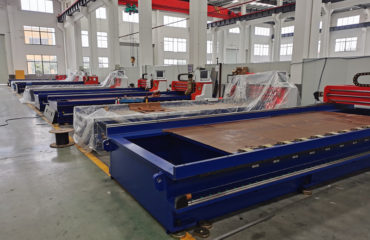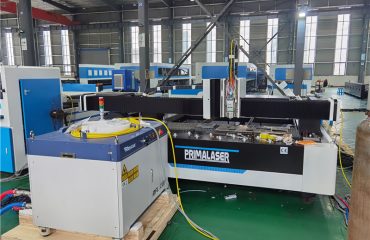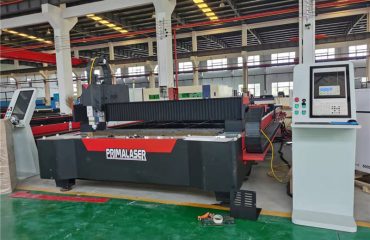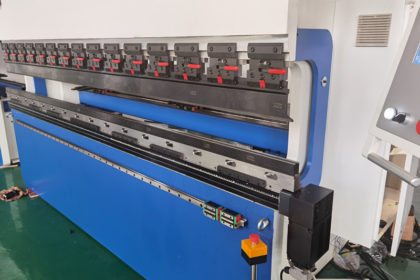
CNC bending machine compensation mode selection of mechanical compensation or hydraulic compensation?
Why cnc press brake bending machine need the v crowning compensations?
In the process of bending, when the Primapress CNC bending machine exerts force on the sheet metal, the sheet metal will also produce a reaction force on the machine,
which will make the machine deform, thus affecting the accuracy of the folded sheet metal. Therefore, in order to improve the bending accuracy, two kinds
of bending machine compensation methods, mechanical compensation and hydraulic compensation, emerged as the times require. When choosing
CNC bending machine, we should consider not only how many tons of bending machine (bending force of bending machine), knife edge width, throat depth
and column spacing, but also the compensation mode of CNC bending machine.
Because the two kinds of bending compensation modes have different requirements for operators, different product precision, and it is very important for buyers to
know what compensation mode to choose.
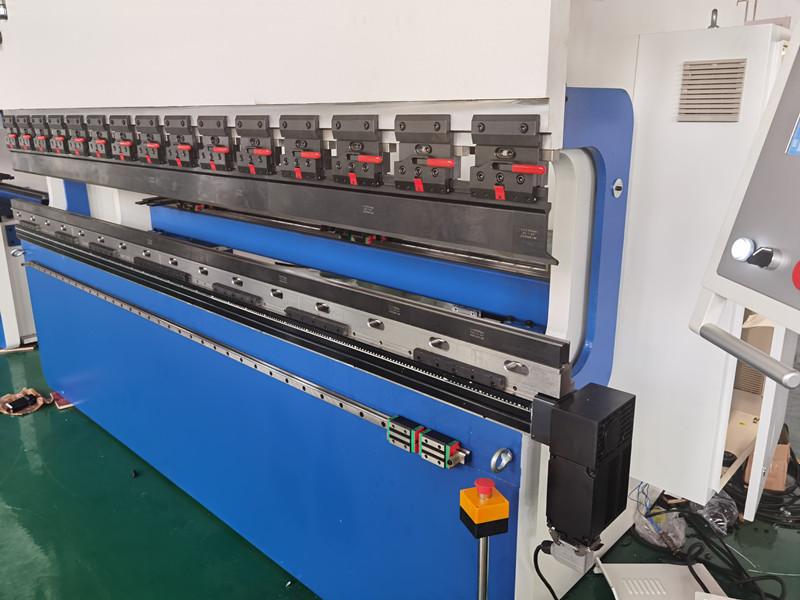
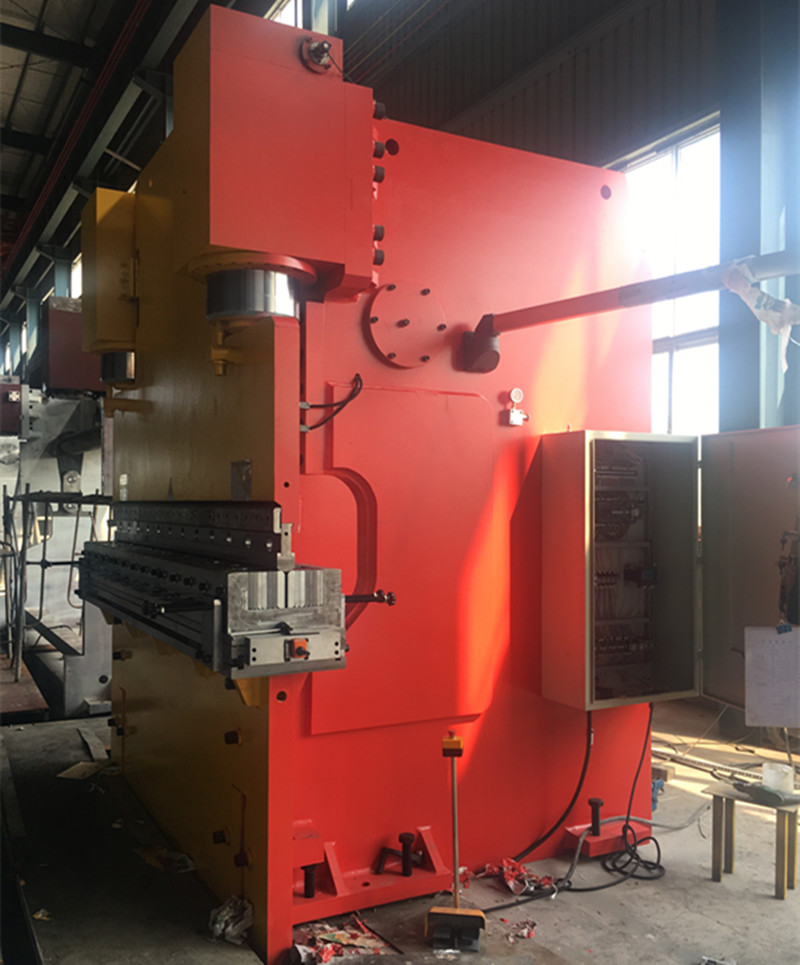
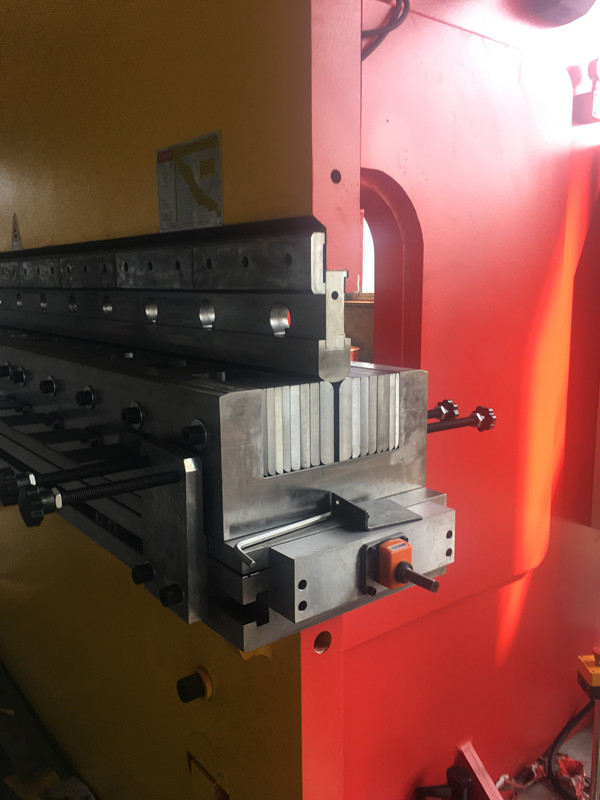
Hydraulic compensation means that there are several small cylinders under the worktable. When the machine is deformed, additional force is applied through
these small cylinders to compensate, so as to reduce the influence of machine deformation on the folded plate. In the CNC system of the machine, the parameters
of the CNC system of the bending machine are set according to the length and thickness of the folded plate. The required compensation amount is calculated
by the computer system, and the instructions are transmitted to the compensation amplifier. Hydraulic compensating proportional valve receives the signal
from compensating amplifier to control the small cylinder beneath the worktable to bulge and reduce the deflection and deformation of the sheet metal.
However, the compensation amount of hydraulic compensation is affected by many factors, such as whether the hydraulic oil leaks, joint loosening, etc.,
which will affect each hydraulic compensation amount, resulting in inconsistencies and differences in each processing plate. Hydraulic compensation system is more complex,
which may cause oil leakage and loosening of sealing ring. The advantage of hydraulic compensation is that with the increasing use of time, the machine will not have wear problems,
while mechanical compensation will have wear problems.
Comparing with mechanical compensation, the hydraulic compensation machine is easy to operate and has low requirement for workers, so the workpiece with high precision
can be folded out. Moreover, the machine with hydraulic compensation system can ensure the full contact between the upper die and the sheet metal,
so as not to allow the displacement of the sheet metal. Considering the durability of the machine and the simplicity of operation, it is better to choose
the hydraulic compensation machine.
Hydraulic compensation uses small cylinders to compensate the worktable, while mechanical compensation uses wedge blocks to compensate the worktable.
The oblique wedge block can be divided into single oblique wedge block and multi-group oblique wedge block. The mechanical compensation consisting
of several groups of oblique wedges has more compensation points than three common hydraulic compensation points. There is no compensation blind zone.
The workpiece folded has high precision and small difference in sheet metal processing each time. It is suitable for batch production.
The mechanical compensation system is simpler than the hydraulic compensation system. It will not leak oil and other conditions.
It has low failure rate and is environmentally friendly. However, the mechanical compensation will wear with the passage of time, which will affect the compensation effect. Mechanical compensation operation requires high requirements. If the same workpiece needs bending several times, workers need to adjust it in real time.
Even if the worker has enough experience, unpredictable errors will occur. If the workpiece does not need multiple bending, the worker has higher technology.
Considering the accuracy of the workpiece, mechanical compensation can be chosen. But in actual production, the cost of the worker with high technology
is also high, so it should be considered comprehensively.
Generally speaking, mechanical compensation and hydraulic compensation have their own advantages, but they all have shortcomings. For example, a number
of CNC bending machine manufacturers with R&D strength, such as Dongforging bending machine, mostly through technical development to compensate
for mechanical compensation and hydraulic compensation deficiencies, which is also the future development of CNC bending machine needs innovation!

